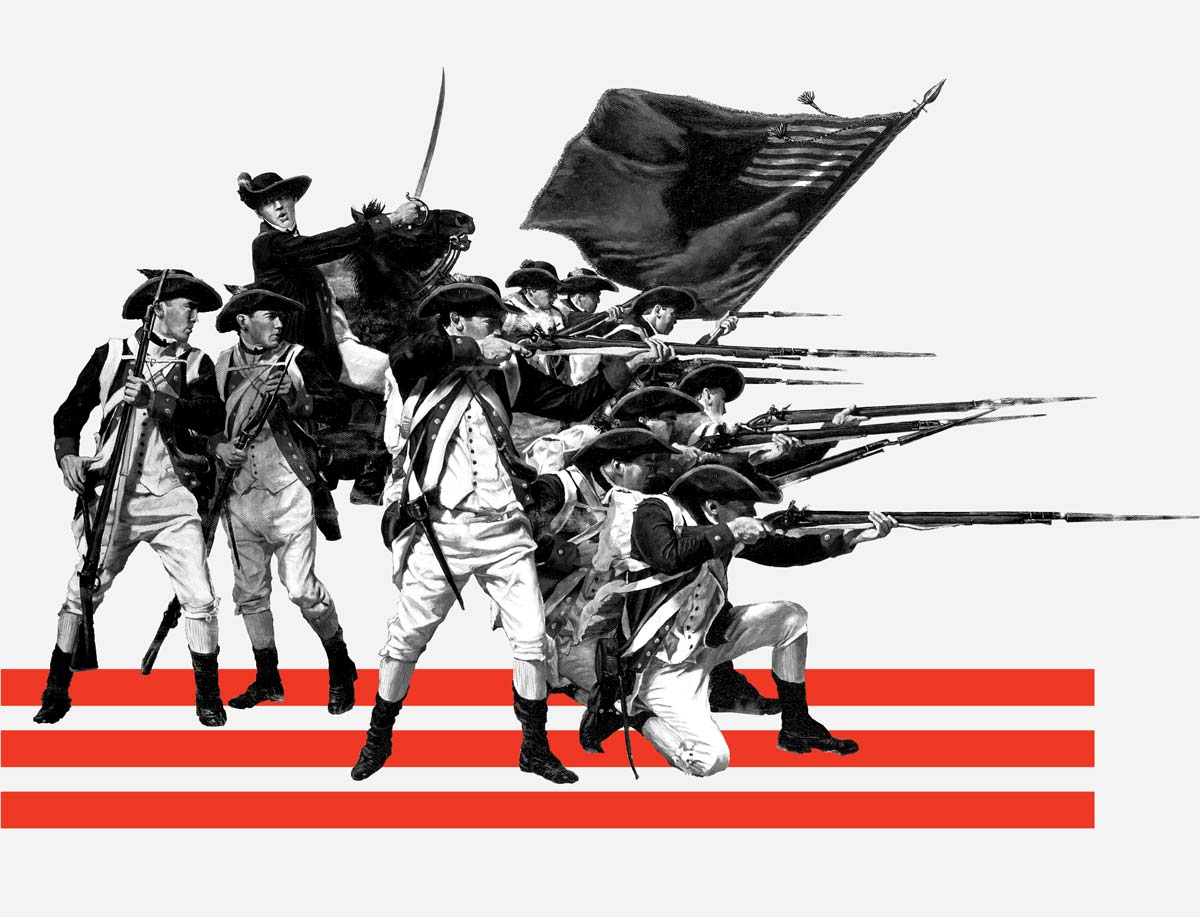American History
Essay by Matthew MugmonEarly American history has been a vibrant stimulus for composers. Paul Revere’s Ride by David Del Tredici, a central figure in late–20th century Neo-Romanticism, offers a stirring setting for chorus and orchestra of Henry Wadsworth Longfellow’s poem on the Revolutionary War’s beginnings. In contrast to Giacomo Puccini’s fantasy-based depiction of the California Gold Rush in La fanciulla del west, John Adams’s opera Girls of the Golden West embraces the richly diverse and often-troubling first-person accounts of this significant moment in the country’s past.
The memories of larger-than-life presidential figures have also catalyzed composers’ imaginations. Abraham Lincoln looms large: Aaron Copland’s Lincoln Portrait for narrator and orchestra and Michael Daugherty’s Letters from Lincoln for baritone and orchestra both use period texts to pay tribute to one of the nation’s most admired past leaders. In often fanciful ways, composer David T. Little’s opera JFK probes more recent history, imagining the thoughts and actions of John F. and Jackie Kennedy in the hours before the president’s assassination in Dallas.
The Space Race, and a broader reckoning with the cosmos, has shaped American composition in profound and playful ways. Mackey’s short chamber opera Moon Tea is a colorful, witty retelling of the historic 1969 meeting between the British royal family and the Apollo 11 astronauts upon their triumphant return from the moon. Christopher Tin’s oratorio To Shiver the Sky tackles the history of flight, setting words by astronomers, pilots, and others in multiple languages, while Eric Whitacre’s Deep Field for chorus and orchestra contends with the Hubble Space Telescope’s breathtaking images of distant galaxies.
In addition to mining iconic events and eras, American composers have confronted recent moments of collective trauma and grief in powerful ways. Steve Reich had family members in lower Manhattan during the terrorist attacks on the World Trade Center in 2001. The devastating first movement of his work WTC 9/11, composed for the Kronos Quartet, intertwines the live (and pre-recorded) sounds of the quartet with those from NORAD and FDNY, from the day of the attacks themselves. Urgent matters of social justice figure into Courtney Bryan’s Yet Unheard, a 2016 work for soprano, chorus, and orchestra that traces the tragic events surrounding Sandra Bland, a young African American woman who was found dead in a jail cell just days after being arrested in a traffic stop. Bryan’s work, and others, remind us that musical works offer a lens through which to learn from, and process, a nation’s rich—but also problematic—legacies.
Matthew Mugmon is Associate Professor of Musicology at the University of Arizona. He has served as the New York Philharmonic’s Leonard Bernstein Scholar-in-Residence, and his research appears in the Journal of Musicology, Music & Letters, the Journal of Musicological Research, and the essay collection Rethinking Mahler. His monograph Aaron Copland and the American Legacy of Gustav Mahler was published in 2019 by the University of Rochester Press.

